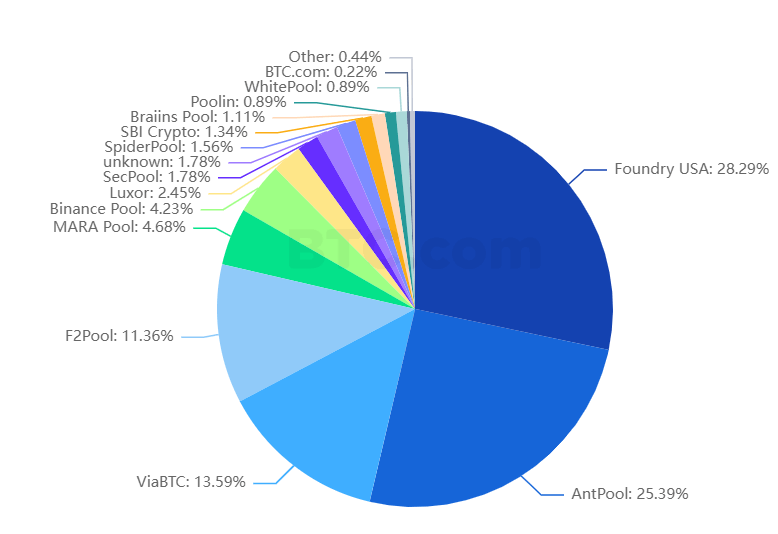Solo Bitcoin miner earns $200,000 reward amid growing centralization concerns
A solo Bitcoin miner has independently solved a BTC block to earn a reward of 3.275 BTC, roughly equivalent to $200,000.
On Aug. 29, Con Kolivas, a software engineer and administrator of the solo mining pool ckpool, announced on X that the miner had successfully solved the 291st solo block in Bitcoin’s history. He congratulated the miner, stating:
“Congratulations to miner 36AisvWi1UiwLTeTZxLzindAkorqeUc3tT for solving the 291st solo block on solo.ckpool.org! This hefty miner with 38PH would solve a block on average once every ~4 months.”
Blockchain data confirms that the miner successfully mined block number 858,978 on the Bitcoin blockchain, which included 2,391 transactions.
Centralization concernsThis achievement comes at a time when concerns about the centralization of Bitcoin mining are growing within the community.
Data from BTC.com reveals that four mining pools—Foundry USA, AntPool, ViaBTC, and F2Pool—have produced about 80% of Bitcoin blocks over the past three days, raising alarms among community members.
 Bitcoin Mining Pool Distribution (Source: BTC.com)
Bitcoin Mining Pool Distribution (Source: BTC.com)
Foundry USA and AntPool alone accounted for more than 50% of the blocks mined by these pools.
This high level of centralization has raised concerns about the future of Bitcoin. Jameson Lopp, co-founder of CasaHODL, weighed in on the issue, explaining that Bitcoin mining centralization is a conflict between economies of scale and the decentralized nature of energy sources. However, he remains optimistic that decentralization will ultimately prevail.
Notably, the risks have been exacerbated by the recent halving event, which cut block mining rewards in half. This reduction has driven many smaller miners out of the market, leaving the industry dominated by publicly traded mining companies.
Bitfinex has warned that this concentration of mining power could lead to potential censorship of transactions and increased vulnerability to coordinated attacks or regulatory pressures. The firm stated:
“This concentration of mining power among fewer entities could lead to increased centralization, which is contrary to Bitcoin’s ethos. Centralization risks could mean the potential censorship of transactions and increased vulnerability to coordinated attacks or regulatory pressures.”
The post Solo Bitcoin miner earns $200,000 reward amid growing centralization concerns appeared first on CryptoSlate.
